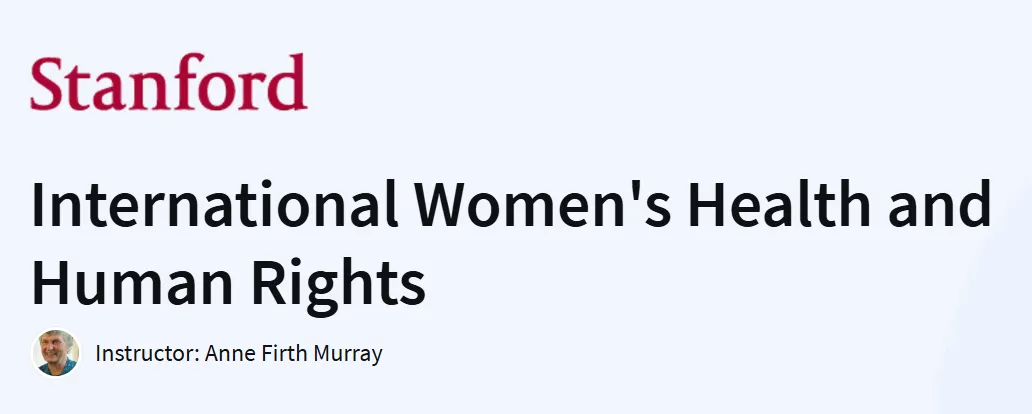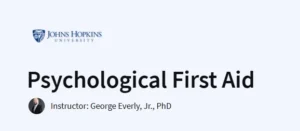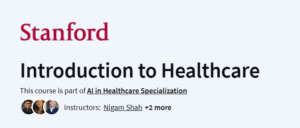What you will learn in International Women’s Health and Human Rights Course
- Understand the interconnection between women’s health and human rights across global contexts.
- Explore critical health issues affecting women, including reproductive health, gender-based violence, and HIV/AIDS.
- Learn about international human rights frameworks and how they apply to women’s health.
- Analyze case studies and real-world challenges in health policy and advocacy.
- Gain insights into global disparities, cultural factors, and legal barriers to women’s healthcare.
- Engage in ethical discussions and reflect on how to support gender equity in healthcare systems.
Program Overview
Introduction to Women’s Health & Human Rights
⏱️1-2 weeks
- Explore the scope of women’s health globally.
- Understand the link between gender, health, and human rights.
- Identify key global health challenges for women.
Violence Against Women & Reproductive Rights
⏱️2-4 weeks
- Examine the impact of gender-based violence on physical and mental health.
- Learn about reproductive rights, access to contraception, and safe abortion care.
- Discuss the ethical and legal dimensions of reproductive health.
HIV/AIDS and Women’s Vulnerability
⏱️4-6 weeks
- Understand the unique vulnerabilities women face with HIV/AIDS.
- Learn how social stigma, gender inequality, and access issues affect care.
- Explore successful intervention models and policy responses.
Empowerment and Policy Change
⏱️6-8 weeks
- Discover how advocacy can improve women’s health rights globally.
- Study policy-making, community mobilization, and international collaboration.
- Reflect on ways to promote gender equity through healthcare reforms.
Capstone Reflections & Global Perspectives
⏱️8-10 weeks
- Analyze case studies from different countries.
- Reflect on what you’ve learned and how it applies to public health, policy, and advocacy.
- Develop a personal or community-based action plan to promote women’s health and rights.
Get certificate
Job Outlook
- Valuable for careers in public health, human rights, global health policy, and social work.
- Opens pathways into roles like Health Policy Analyst, NGO Program Officer, Gender Specialist, and Human Rights Advocate.
- Increasing demand for professionals who understand gender equity and global health challenges.
- Salaries vary widely based on role and location but typically range from $50K–$100K+ in global health sectors.
- Knowledge in this field is crucial for organizations working with UN agencies, NGOs, and public health institutions.
Specification: International Women’s Health and Human Rights
|
FAQs
- Yes, the course is designed for beginners, with no prior experience required.
- It provides foundational knowledge on women’s health and human rights issues.
- Ideal for students, professionals, and advocates passionate about social justice and health equity.
- Understanding the interconnection between women’s health and human rights across global contexts.
- Exploring critical health issues affecting women, including reproductive health, gender-based violence, and HIV/AIDS.
- Analyzing case studies and real-world challenges in health policy and advocacy.
- Gaining insights into global disparities, cultural factors, and legal barriers to women’s healthcare.
- Engaging in ethical discussions and reflecting on how to support gender equity in healthcare systems.
- The course consists of 14 modules covering topics from infancy through old age, including education, reproductive health, violence against women, and aging.
- It is self-paced, allowing flexibility to learn at your own schedule.
- Estimated to take approximately 58 hours to complete.
- Yes, upon completing the course, you will earn a Certificate of Completion from Stanford University.
- The certificate can be added to your resume or LinkedIn profile to showcase your knowledge in women’s health and human rights.
- The course has received a 4.9 out of 5 stars rating from over 1,600 reviews, indicating high learner satisfaction.
- Learners appreciate the comprehensive coverage of women’s health and human rights issues, as well as the engaging content.
- Some learners suggest that the course could include more advanced topics for those seeking deeper expertise.





